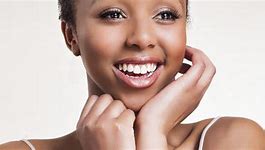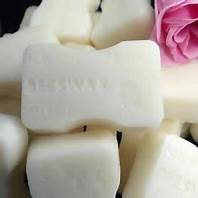Majority of Black British women suffer side effects from hair relaxers such as burnt scalp, study finds











Majority of Black British women suffer side effects from hair relaxers such as burnt scalp, study finds
Two thirds of Black British women have experienced painful side effects – including burnt scalps and hair loss – from using hair relaxers, new research has revealed.
A study of 1,024 Black British women aged 25-44, conducted by feminist group Level Up and Black hair care company Treasure Tress, found that over 95 per cent of Black British women do not trust big beauty brands to sell them safe products.
Some 97 per cent of respondents believe hair products containing lye – also known as sodium hydroxide – should be banned.
The survey, the first of its kind in Britain, sought to understand Black women’s experiences of hair relaxers, uncovering some startling experiences of ailments developed following use of such products.
Hair relaxers that contain lye, a harsh chemical used in drain unblockers, have been linked to a range of health problems among Black British women including breast cancer, hormone imbalance, asthma, fibroids and fertility problems.
Ikamara Larasi, campaigner at Level Up said: “We should all be able to trust the products we use on our bodies are safe. But hair relaxers sold to black women include lye, the same dangerous chemical used to unblock drains.
“Almost two in three Black British women have had negative experiences with lye-based hair relaxers, including scalp burns and hair loss. These products are also linked to a 30 per cent increase in breast cancer.
“Thousands of Black British women are calling for No More Lyes. Beauty companies must remove the lye or take relaxers containing lye off the shelves.”
Provided by The Independent Black British women spend six times more on their haircare than white women (Yvonne E. Maxwell)
Level Up, which previously forced ITV to remove plastic surgery and diet pill adverts from Love Island, is behind the #NoMoreLyes campaign petition and is challenging the brands to respond.
It has been calling for the removal of “toxic” hair products marketed at Black women from shop shelves since August, following research that found long-term use of lye-based relaxers may be linked to increased breast cancer risk.
Targeting major brands over shampoo and relaxants containing lye and other chemicals linked to serious health complications, members of the collective said: “If the lives of Black women and girls are important to these companies, they’ll take these poisonous products off the shelves.”
Though the number of British women who use hair relaxers is not known, 2018 research from Treasure Tress found that Black British women spend £168m per year on hair care products. The same research revealed that Black women account for 10 per cent of haircare spend in Britain but constitute only two per cent of the UK adult population.
The global hair relaxer market was valued at £581m last year, according to MarketWatch. According to the British Beauty Council, Black British women spend six times more on their haircare than their white counterparts.
Jamelia Donaldson, chief executive of Treasure Tress said: “Hair is such a crucial part of our identity as Black women, so it was absolutely heartbreaking to hear the traumatic first hand experiences of the Black women we surveyed, especially those who are dealing with long term/permanent side effects of using lye based relaxers.
“Trust, and brand reputation are key currency in the beauty industry ‘post’ pandemic, an industry which is constantly striving to become more diverse. It’s our hope that serious and long term changes are made to protect Black women and the products produced for them.”
Articles-Latest
- Skin tags: Why they develop, and how to remove them
- So That’s Why Your Skin Gets Crepey As You Get Older
- Eye Infection from False Eyelashes
- Teeth stain removal and whitening solutions
- Benefits of collagen for skin
- Why vitamin E should be part of your skincare regime
- Can gray hair be reversed?
- Hair loss affects 1 in 10 women before the menopause – here’s how to treat it
- Conscious ageing and Black skin: What happens when Black does crack?
- Your skin color may affect how well a medication works for you — but the research is way behind
- The C word Cancer
- Astringents
- How does light therapy work? The science behind the popular skincare treatment
- The Most Offensive Fashion Police Criticisms of All Time
- Everything you need to know about lip filler migration, as told by the experts
- Pig semen and menstrual blood – how our ancestors perfected the art of seduction
- Everything you need to know about benzoyl peroxide
- We've bleached, relaxed, and damaged our hair to make ourselves look more white
- Will this be the year that facial filler is cancelled?
- Shock of the old: 10 painful and poisonous beauty treatments
Cosmetic ingredients
LOGIN
Who's On Line
We have 29 guests and no members online
Articles-Most Read
- Home
- White Bees Wax
- Leucidal
- Cosmetic Preservatives A-Z
- Caprylyl Glycol
- Cosmetics Unmasked - How Safe Are Colorants?
- Cosmetics Unmasked - Choosing Ingredients
- Cosmetics Unmasked - Colorants And Fragrances
- EcoSilk
- Toxic Beauty - Who's Looking At Cosmetics?
- Cosmetics Unmasked - Fragrances
- Microbes and Cosmetics
- Chemicals Lingering In The Environment
- Microbes and Safety Standards
- Yellow Bees Wax
- Potassium Sorbate
- Toxic Beauty - Hazardous To Your Health
- What's Happening in the USA - Cosmetic Regulations - Toxic Beauty
- Synthetics In Cosmetics - The Industry Fights Back
- Fresh Goat's Milk Soap
- Active Ingredients
- Cosmetics Unmasked - Listing Cosmetics
- Toxic Beauty - Cocktails and Low Doses
- Natural Waxes A-Z
- Natural Butters A-Z




